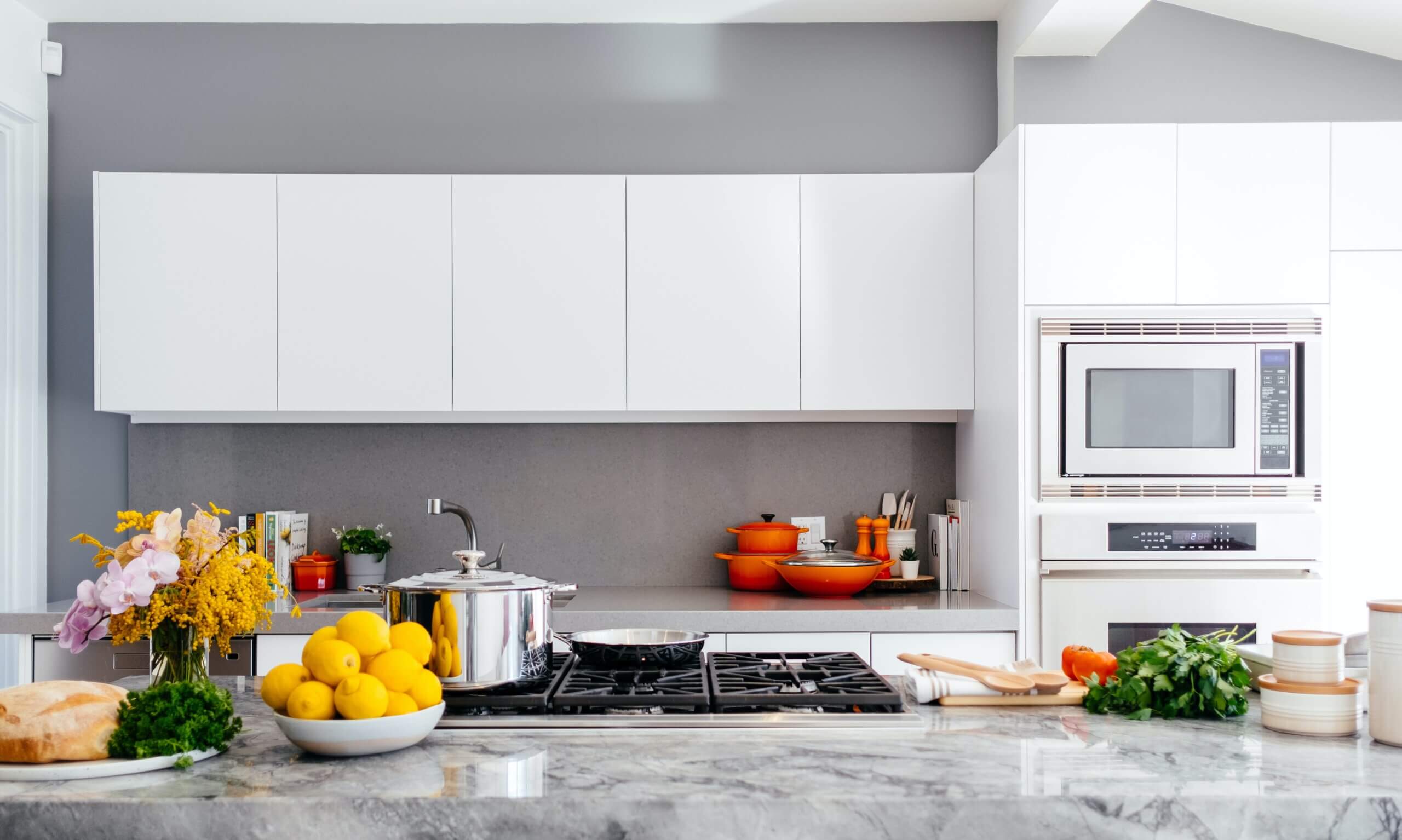Kitchens are the single most popular rooms to renovate in homes, and for good reason: even a minor kitchen remodel can have an ROI of 81%.
A common kitchen element to be replaced is the countertop. There are countless types of surfaces available to use for countertops, each one with different strengths and weaknesses. And while one material may be similar to another in cost alone, selecting the right surface type for your lifestyle can mean the difference between maximizing your enjoyment of a room and wishing you’d done it differently.
In this article we’ll briefly compare quartz, marble, and granite countertops -- three of the most popular types of countertops out there. Hopefully, we can help you come to a conclusion about which countertop type is best for you.
Granite is a naturally-occurring type of stone. Primarily made up of igneous rock, it’s formed via crystallization of molten rock, undergoing huge amounts of pressure and heat over time. There are several types of granite sold commercially, although they are not all genuine volcanic-origin stone. These include pegmatite, syenites, diorite, larvikite, and true granite.
Granite countertops are favored over many other stone countertops, and it’s highly valued for its resistance to acids, as well as its sheer hardness. Although it’s quite durable because it’s a porous material it can be stained if not properly sealed before use.
Created using one of the single hardest materials on earth, quartz countertops are among the most durable options for kitchen counters. As a nice bonus, they’re also among the most eye-catching. Quartz comes in a very wide variety of colors, from apple green to fire engine red, with an array of browns, blacks, and creams between them.
Many quartz slabs come with sparkles or veining to make them look similar to granite or marble. There’s a profound difference between these natural stone materials and quartz, however: instead of being mined from a quarry, quartz is engineered in a factory. With a primary ingredient of ground quartz, polyester resins are used to hold it together and pigments are used for color.
As quartz is highly resistant to spills, heat, cuts, and abrasions, there’s not much to say against it. Some dislike quartz because its patterns can appear unnaturally uniform, but manufacturers are learning to have it appear more like natural stone. The one caveat to quartz is that edges and corners can chip, after which they’d need to be repaired by a pro. However, getting countertops with rounded edges can help.
Finally, marble is a luxurious material that lends an air of sophistication and warmth to any kitchen. It’s a metamorphic rock which contains crystallized limestone, and it’s prized for its beauty which is difficult to replicate synthetically.
Marble’s one glaring flaw is that, compared to quartz or granite, it’s somewhat soft and susceptible to damage. Because of this, many homeowners will use marble only in places where it’s less likely to see heavy use: on an island, or on a side of the kitchen that’s less likely to be used for heavy food preparation.
Hopefully this short article has helped you better understand your options when it comes to quartz, marble, and granite countertops.
